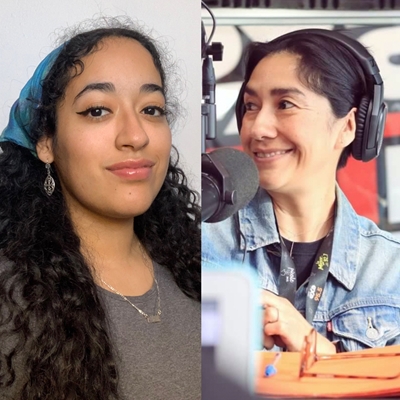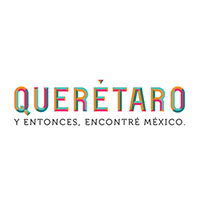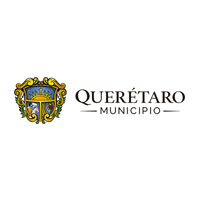Hay Festival Querétaro 2023 – Indigenous Cultures
Welcome to the Hay Festival Querétaro 2023 programme. The festival took place from 7 to 10 September, with 105 activities with 151 international guests from 20 countries, and with Hay Joven, Hay Festivalito, Hay Delegaciones and Talento Editorial events, as well as two activities in Cadereyta.
Event HJ15
Jumko Ogata Aguilar in conversation with Carolina Sánchez
UAQ, explanada de Rectoría, Auditorio Fernando Díaz Ramírez
Read moreJumko Ogata Aguilar (Mexico) is a writer and an Afro-Mexican anti-racism activist. Originally from Veracruz, she studied Latin American Studies at the UNAM. She writes fiction, essays and film criticism. Her writings have been published in the Revista de la Universidad de México and by the British Council in Mexico, and she writes a column for Coolhuntermx. She contributed to the anthology of feminist texts Tsunami 2, published by Sexto Piso in 2020, and recently released her first book for children, Mi pelo chino (2023), which is in both Spanish and Mixteco. In conversation with Carolina Sánchez.

Event HD5
Jumko Ogata Aguilar in conversation with Elisa Guerra
Centro Cultural Comunitario Carrillo Puerto
Read moreThe main character of Mi pelo chino says that she used to find her curly hair annoying because it was unlike the hair of other girls her age. However, one day her grandfather teaches her the special care that her Chinese hair needs, and all the hairstyle possibilities it offers, because this shows how she can be beautiful in different ways. This is a story about the construction of an identity in peoples who have traditionally been ignored in national cultural production. Jumko Ogata Aguilar (Xalapa, 1996) is a writer and an Afro-Mexican anti-racism activist. Originally from Veracruz, she studied Latin American Studies at the UNAM. She writes fiction, essays and film criticism. Her writings have been published in the Revista de la Universidad de México and by the British Council in Mexico, and she writes a column for Coolhuntermx. She contributed to the anthology of feminist texts Tsunami 2, published by Sexto Piso in 2020. In conversation with Elisa Guerra.

Event HF1
Jumko Ogata Aguilar in conversation with Tere Alcántara
Ixi xniyu chinu. Mi pelo chino
Museo de la Ciudad (Espacio Hay Festival)
Read moreThe main character of Mi pelo chino says that she used to find her curly hair annoying because it was unlike the hair of other girls her age. However, one day her grandfather teaches her the special care that her Chinese hair needs, and all the hairstyle possibilities it offers, because this shows how she can be beautiful in different ways. This is a story about the construction of an identity in peoples who have traditionally been ignored in national cultural production. Jumko Ogata Aguilar (Mexico) is a writer and an Afro-Mexican anti-racism activist. Originally from Veracruz, she studied Latin American Studies at the UNAM. She writes fiction, essays and film criticism. Her writings have been published in the Revista de la Universidad de México and by the British Council in Mexico, and she writes a column for Coolhuntermx. She contributed to the anthology of feminist texts Tsunami 2, published by Sexto Piso in 2020. She will talk to Tere Alcántara.

Event 55
J. Silverio from Taller Leñateros and Isela Xospa in conversation with Yásnaya Elena Aguilar
Eccles Centre Event
Museo de la Ciudad (Espacio escénico)
Read moreIn conversation with Yásnaya Elena Aguilar, members of the Maya artistic and writing collective, and a Nahua designer and publisher will talk about art and text production based on the knowledge of the native peoples of Mexico. Javier Silverio Balderas Castillo has been an artist for 48 years at Taller Leñateros, a group which won the 2021 National Arts and Literature Prize. It is a publishing collective that consist of Maya artists from Chiapas. Since 1975 they have been writing, illustrating, printing, binding and publishing books with paper made by themselves. Isela Xospa, from Milpa Alta, is a Graphic Design graduate of UAM Xochimilco. She has undertaken independent publishing and design projects in Mexico and New York. She won the 2021 Antonio García Cubas Award in the Children’s Work category, and was a British Library Chevening Scholar in 2021-2022, with a project about the first printed books in native languages in Latin America.
With the support of the ECCLES CENTRE FOR AMERICAN STUDIES – THE BRITISH LIBRARY

Event 60
Diana Manzo and Yael Weiss in conversation with Pascal Beltrán del Río
Literary journalism in Mexico
Jardín Guerrero
Read moreThe journalist Diana Manzo (Mexico), from Unión Hidalgo, Oaxaca, has a degree in Communication from the Benemérita Universidad Autónoma de Puebla and a Master’s in Education from the UNAM. She has worked with media outlets such as Página 3 and Aristegui Noticias. In 2015 she created the independent website Istmo Press, which covers the Tehuantepec Isthmus area. Her organisation covers matters related to gender, migration, the environment and health. In 2019 she was given an Honourable Mention in the National Journalism Prizes. Yael Weiss (Mexico) is a writer, publisher and television broadcaster. She has authored four books, the most recent of which is Los muros de aire y otras crónicas de frontera, which offers four articles about the author’s time in the border cities of Ciudad Hidalgo, Ciudad Juárez, Tenosique, Tijuana and Reynosa. They will talk to the journalist Pascal Beltrán del Río.

Explore All Genres
- Afrodescendencias
- Art
- Arts & Culture
- Biography
- Children
- Culture
- Dance
- Drawing
- Economics
- Education
- Equality
- Family
- Film
- Food
- Gender
- History
- Human Rights
- Indigenous Cultures
- Journalism
- Language
- Law
- Literature
- Lviv BookForum
- Memoir
- Music
- Nature & Environment
- Performance
- Photography
- Poetry
- Politics
- Science
- Society & Health
- Theatre
Principal Sponsor





Partner for Latin America

